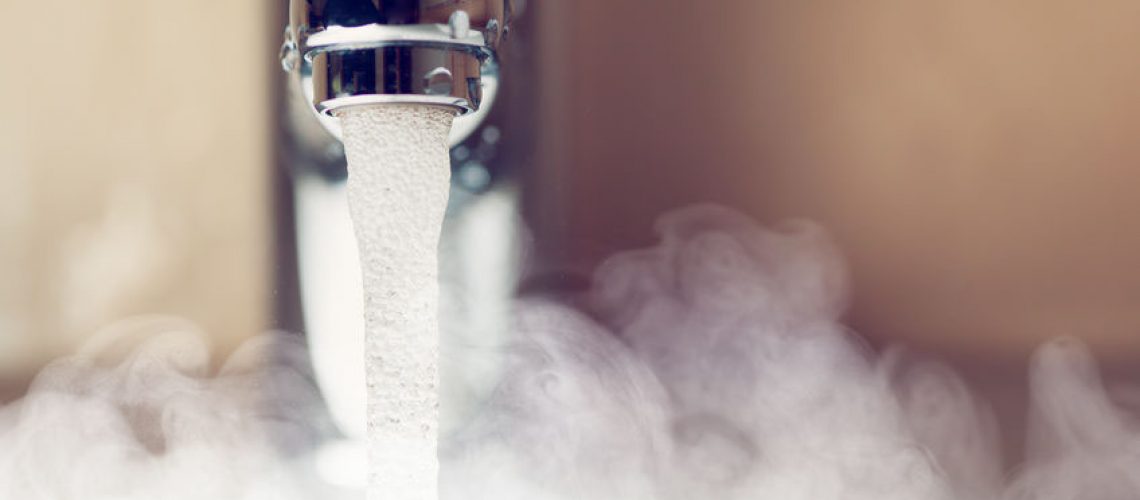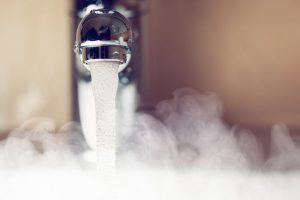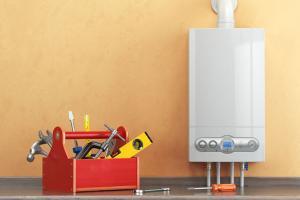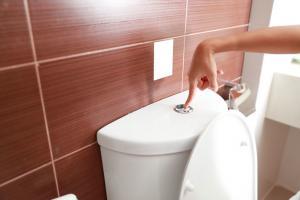One of the most common problems UK homeowners experience is hard water. This is caused by a build of minerals which subsequently destroys kitchen appliances and leaves a filmy soap scum around the bath.
Softening your tap water helps protect your pipes from the harmful build-up of magnesium and calcium whilst also eliminating limescale.
Essentially, water softeners protects your family from coming into contact with minerals such as magnesium, calcium, iron and limescale. Although there are no serious health risks, hard water dries out hair and skin. Oftentimes, it will cause your scalp to peel and leave you feeling itchy.
Signs of hard water include:
Residue on your skin: if after washing your hands with soap you feel a filmy sensation on your skin, it is a sign of hard water. The condition is caused by calcium in the water reacting to form soap scum.
Calcium spots: when water has too much calcium carbonate content, it leaves spotted stains on glass and silverware.
Clothing stains: mineral stains will show up on clothing when you remove them from the washing machine. The chemicals in hard water erode the fabric and will wear your clothes out quicker than usual.
Limited water pressure: mineral deposits build up in the water pipes which ultimately narrows the diameter and reduces the flow of water.
Installing a water softener saves you from having to prematurely replace components of your water supply system or spend hours cleaning up soapy residue that clings around baths and kitchen sinks.
What is Water Softener?
In brief, a water softener removes the minerals that cause water to become hard. All this takes place in a process called ‘ion exchange.’
Ions are atoms with either a positive or negative electrical charge. The type of charge is determined depending on whether the imbalance is caused by too many electrons (negative charge) or too many protons (positive charge).
When ions are exchanged between two electrolytes, a natural purification process takes place. In the case of water, the regeneration process replaces calcium, magnesium, iron and manganese with sodium ions.
Sodium is needed to make water softer. All salt-based water softeners have resin beads which extract hard minerals from the water and flushes them out via a drain. The resin beads then release sodium into the water.
Soft water is not only better for your pipes, clothes and skin but is also safe to drink. The amount of salt in household tap water is typically less than two per cent of the recommended daily salt intake, so is well within the parameters of health and wellbeing.
How Water Softeners Work
Water softeners comprise of a narrow water tank and a second wider tank, known as a brine tank. Salt is added into a compartment in the second tank to create a solution called brine – hence its name.
When water enters the top of the water tank, it percolates down to the resin beads. Resin beads have a negative charge which attracts the positively charged minerals in the water. The resin bead traps the minerals whilst allowing water to filter through into the brine tank.
This is when the reverse ion exchange takes place.
During the regeneration process, the water is cleaned, disinfected and replenished with the brine solution. The regeneration process also enables the water softening system to clean itself and increase its life-span.
Why Water Softeners Work?
Minerals that cause water to harden damage household appliances. The scale deposits create a buildup of scum that is similar to the buildup of plaque when you don’t clean your teeth.
A buildup of scale deposits causes electrical equipment such as kettles, dishwashers, coffee makers and washing machines to deteriorate faster. The higher the temperature, the more calcium and magnesium will solidify.
It is thought that hot water heaters are the worst appliance to be affected by hard water because they can accumulate up to 15kg of calcium carbonate – a rock-like scale which fatally damages mechanical components.
The Battelle Institute Energy Savings Study found that hard water scale deposits reduce the efficiency of hot water heaters and can increase energy bills by as much as 48%.
You may be able to detect whether hard water is causing damage to your water heater. If you hear a sound similar to microwave popcorn coming from inside your hot water heater, you should consider investing in a water softener. They are a lot less expensive than a new boiler.
Hard water also leaves unsightly stains around the rims of pots, pans, dishes and glassware. You may also find traces on tiles, basins, sinks and baths even after cleaning.
If you live in a hard water area, a good quality water softener is an asset you cannot afford to ignore. Not only do they improve the quality of your water, but they also extend the lifespan of your household appliances. Discover our comprehensive water softener installation service






